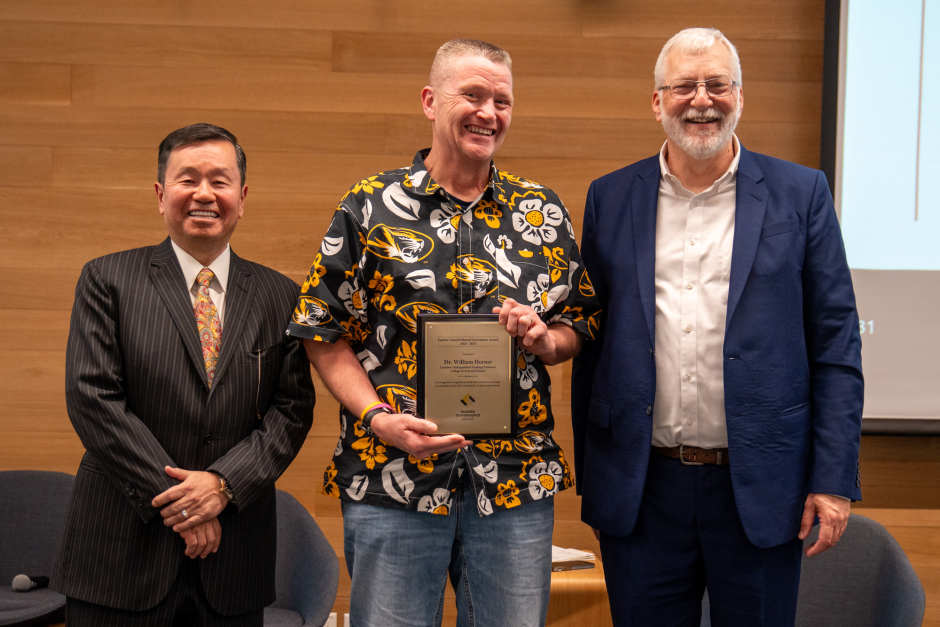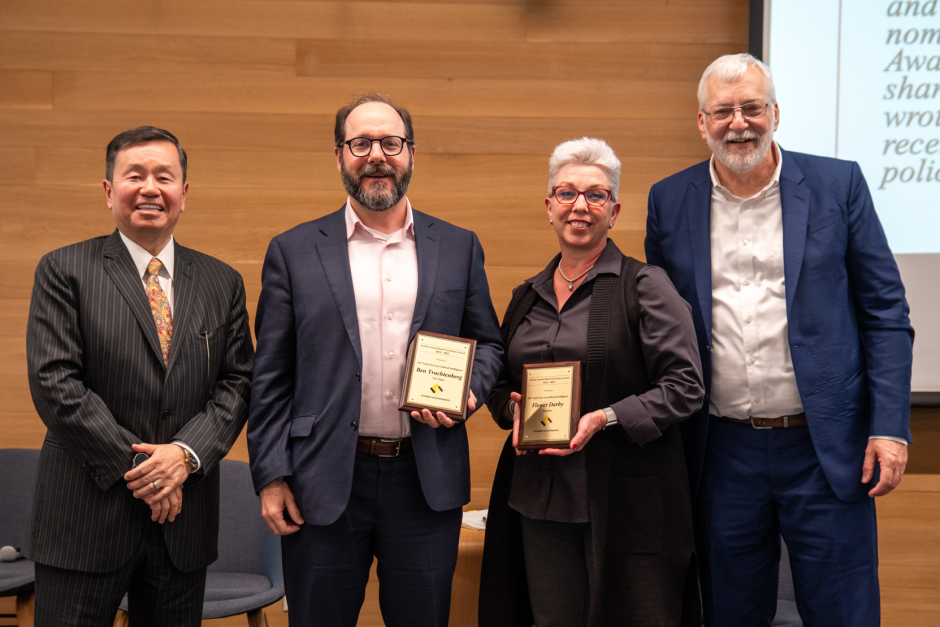April 3, 2025
Contact: Janese Heavin, heavinj@missouri.edu
Photos by Abbie Lankitus
Celebrating the success and dedication of University of Missouri faculty, the Mizzou Faculty Council recently announced its 2024-25 Shared Governance Awards. The awards recognize those who continue to show their commitment to excellence in shared governance on our campus.
Shared governance is a collaborative decision-making process that brings together faculty, administration, and other stakeholders to guide the university’s direction and policies.
“The annual shared governance award is in recognition of the people and groups who help give faculty a platform they wouldn’t otherwise have,” Faculty Council Chair Tom Warhover said. “Both Dr. Horner and Mizzou’s Task Force on Artificial Intelligence have done a terrific job of navigating shared governance and stepping up in ways that have opened doors for their faculty members to have a voice at the university level.”
This year’s recipients are:

Bill Horner
Bill Horner — Curators’ Distinguished Teaching Professor in the College of Arts and Science’s Truman School of Government and Public Affairs — received the individual award.
In his nomination materials, Horner was recognized for his 25 years of work focused on effective faculty governance in collaboration with fellow faculty members, staff, students and university leadership. Horner strongly advocates that productive campus affairs begin with the democratic process.
“As an educator of American government, he continuously champions the democratic process as a leader in curriculum affairs and campus shared governance,” one nominee wrote.

Mizzou Task Force of Artificial Intelligence
The Mizzou Task Force on Artificial Intelligence was recognized as this year’s group award winner.
The task force has made sure faculty and staff have a head seat at the table in the development of AI-related policies and training, according to the nomination materials.
“I am inclined to nominate this group for the Shared Governance Group Award not just because they formed in the spirit of shared governance, met, did careful research and wrote a detailed report, but because their work was received by administration and has resulted in actual policy implementation,” one nominee wrote.



